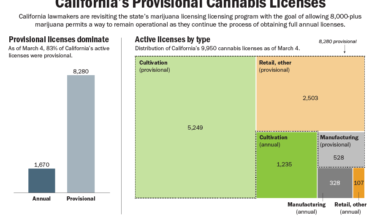
Members of the US House of Representatives voted last night in favor of legislation, “The Medical Marijuana and Cannabidiol Research Expansion Act,” that seeks to facilitate cannabis-specific scientific research and potential drug development.
Two-hundred and sixteen Democrats voted in support of the bill, as did 109 Republicans. Ninety-five Republicans voted against advancing the bill.
It now goes to the Senate, where lawmakers in April previously voted unanimously in favor of similar legislation. The bill is anticipated to be advanced quickly to the President’s desk.
The Act provides the office of the US Attorney General with a 60-day timeline to either approve or deny the applications from scientists wishing to engage in clinical trials involving the use of cannabis by human subjects. (Protocols must first be reviewed and approved by both the Secretary of the US Department of Health and Human Services and by the National Institutes of Health prior to the AG’s authorization. Those agencies do not have an explicit timeline with which to complete their reviews.)
The Act also mandates the US Attorney General to solicit applications from those seeking to grow cannabis for either research purposes or for purposes of potential drug development, and it provides a timeline for the AG to approve those applicants.
The Act also calls upon federal agencies, including HHS, to provide a report on the “potential therapeutic effects of cannabidiol or marijuana on serious medical conditions.” In past years, the US National Academy of Sciences, Engineering, and Medicine have compiled similar reports of this nature for Congress, though those reports garnered little attention.
Under current regulations, the US Drug Enforcement Administration is primarily tasked with reviewing and licensing marijuana cultivators, as well as granting Schedule I licenses to scientists wishing to study cannabis in clinical settings. In 2016, the agency announced that it would expand the pool of federally licensed growers beyond just the University of Mississippi (which was initially granted a federal cannabis cultivation license in 1968). In May 2021, the agency announced that it had reached agreements with a handful of third-party applicants to allow them to grow cannabis for use in federally approved clinical trials. However, the US National Institute on Drug Abuse has yet to officially partner with any of these entities and there is no explicit timeline as to when they will do so.
For decades, scientists wishing to work with marijuana have complained that it often takes years before their research protocols are approved by the DEA, and that the quality of cannabis provided by the University of Mississippi’s cultivation program is of inferior quality and that it is not representative of the products available in state-legal markets.
In response to those complaints, House members earlier this year passed legislation, HR 5657: The Medical Marijuana Research Act, permitting authorized scientists for the first time to access cannabis flowers and other products manufactured in accordance with state-approved marijuana programs. However, those explicit provisions were not included in the new bill that is being fast-tracked by both chambers.
NORML’s Deputy Director Paul Armentano criticized this omission. “Currently, the limited variety of cannabis cultivars accessible to federally licensed researchers does not represent the type or quality of cannabis products currently available in legal, statewide markets,” he said. “The fact that nearly one-half of US adults have legal access to these multitude of cannabis products, but our nation’s top scientists do not, is the height of absurdity and it is an indictment of the current system. This proposal misses the opportunity to change that reality.”
Separate legislation in the House — the newly introduced “Developing and Nationalizing Key Cannabis Research Act of 2022,” sponsored by Congressmen Scott Peters (D-CA) and David Joyce (R-OH) — does permit licensed scientists to clinically test state-licensed cannabis products and it appropriates funds for the creation of academic research centers to engage in “interdisciplinary research related to cannabis.”
Despite federal hurdles, scientific interest and studies involving cannabis have increased significantly over the past two decades. Since 2010, scientists in the US and around the world have published an estimated 30,000 peer-reviewed papers referencing the cannabis plant or its constituents, with the annual number of total papers increasing every year. By comparison, researchers published fewer than 3,000 total papers about marijuana in the years between 1990 and 1999 and fewer than 2,000 total studies during the 1980s.
Related
Medical Disclaimer:
The information provided in these blog posts is intended for general informational and educational purposes only. It is not a substitute for professional medical advice, diagnosis, or treatment. Always seek the advice of your physician or other qualified healthcare provider with any questions you may have regarding a medical condition. The use of any information provided in these blog posts is solely at your own risk. The authors and the website do not recommend or endorse any specific products, treatments, or procedures mentioned. Reliance on any information in these blog posts is solely at your own discretion.






